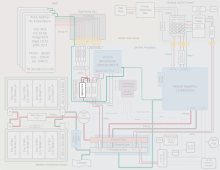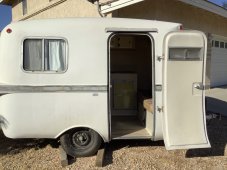I have started my install on my RV and got hung up on grounding of the solar panel frames. Initially I was planning on grounding the frames and also using a DC SPD on the positive and negative connection from the panels. I have not seen these connections in any RV based installs I have seen online so I am second guessing myself. Should I remove the highlighted/brighter connections (panel ground and SPD) from my install?
The following doc indicates the frames should be grounded. https://diysolarforum.com/resources/grounding-made-simpler-part-4-mobile-systems.159/
There are only few threads specifically on this topic applied to RVs and they are unclear to me. There seems to be some argument about the need to ground the frames in a system that is grounded to the chassis but not to the actual earth/dirt via a grounding rod or the like. This would be the case when the RV is not connected to AC power which will be often.
I believe NEC would indicate I should ground the frames (Vmax 50v+) but professional solar installs on RVs seem to always skip it.

The following doc indicates the frames should be grounded. https://diysolarforum.com/resources/grounding-made-simpler-part-4-mobile-systems.159/
There are only few threads specifically on this topic applied to RVs and they are unclear to me. There seems to be some argument about the need to ground the frames in a system that is grounded to the chassis but not to the actual earth/dirt via a grounding rod or the like. This would be the case when the RV is not connected to AC power which will be often.
I believe NEC would indicate I should ground the frames (Vmax 50v+) but professional solar installs on RVs seem to always skip it.




